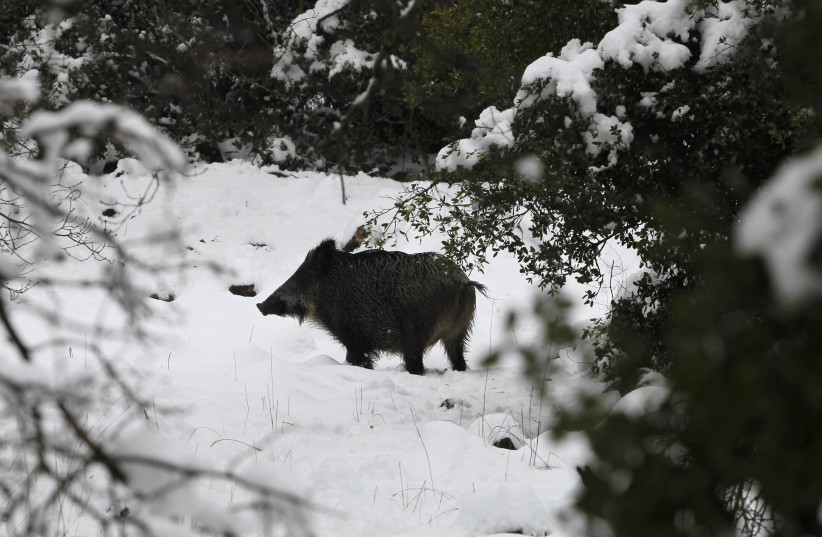A University of Haifa study has found that approximately half of Haifa's residents would be willing to pay a tax increase if the funding went to combat the urban infestation of wild boars that the northern coastal city faces.
The percentage of residents in Haifa who were harmed or felt threatened by wild boars spiked almost five-fold to 29% by the end of 2021 – from just 6% at the end of 2019. These boar invasions have also been observed in neighboring cities as well as in many others worldwide, such as Hong Kong and Austin, Texas.
The university's study offered participants three hypothetical municipality solutions for the eradication of wild boars on Haifa’s streets, and asked them to select their most preferable one. Each of the three plans offered a different degree of intervention – and, of course, a corresponding tax increase.
How can Haifa residents solve their wild boar problem?
The first was a complete plan to eradicate wild boars from public areas that included nine actions for prevention and response: limiting food sources, fixing garbage bins, hiring an ecologist, constructing fencing, improving Haifa’s street sanitation system, implementing new road signs, establishing a 24/7 emergency line and volunteer patrol, and establishing an education program in schools to prevent the feeding of hogs.

The study also offered a partial plan to eradicate wild boars that includes three of the response actions: an overhaul of the municipal cleaning system, a 24/7 emergency line and a volunteer patrol. Non-interference was the third option presented and did not include a tax increase.
Different policies would bear additional property taxes to implement. The study’s proposed tax increases were NIS 20, NIS 50, NIS 100 and NIS 200 per month.
46% of respondents selected a full or partial initiative to solve the problem. While this was not a majority, many more residents opted for a slight increase in taxes to tackle this issue. The study concluded that the average Haifa resident was willing to pay an additional NIS 19 in property taxes per month, for a total of NIS 226 per year in additional taxes.
Who is willing to pay more taxes?
The study found that there are demographic and political differences in the choices made by respondents. Respondents who were female, more religious, more right-wing politically and earn lower salaries were more willing to pay the tax increase – as the wild boar issue is likelier to affect them – whereas left-wing, secular and higher-earning respondents did not want to pay the tax increase, as the issue does not affect those demographics as severely.
